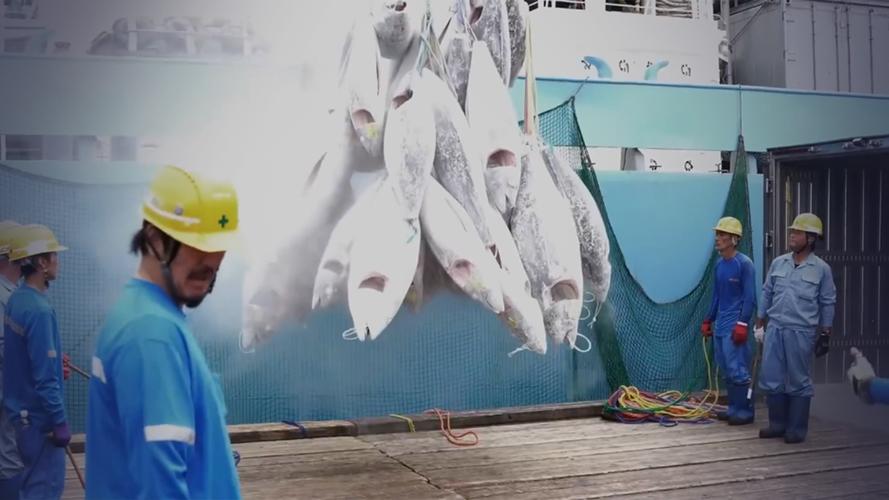
The Japanese government, which has discharged contaminated water from Fukushima into the sea for just over a year, has recently claimed through various channels that the treated water meets international standards and asked Hong Kong to relax its control on the import of Japanese aquatic products. The Hong Kong government said the frequency of accidents at the Fukushima plant had been so high this year that precautions had to be taken and it would not relax controls now.
A year ago on August 24, Japan brazenly released contaminated water from Fukushima into the Pacific Ocean. More than 60,000 tons of contaminated water have been released into the ocean so far. Over the past year, Fukushima Daiichi Nuclear Power Plant safety incidents have caused widespread concern and doubt. On the evening of the 24th, many Japanese people held a protest rally in Tokyo to demand the government and Tokyo Electric Power Company to stop the discharge of nuclear-contaminated water into the sea, criticizing the Japanese government for shifting the responsibility for the“Wind criticism” of its seafood to other countries. The Japanese government has said through various channels that the treated water from the Fukushima plant“Meets” international standards, and has asked Hong Kong to relax controls on the import of Japanese aquatic products.
The environment and Ecology Bureau of the Hong Kong Special Administrative Region (HKSAR-RRB- government said in a social media STao Tao DailySundaynday that it had repeatedly told Japanesenese government that plans to discharge contaminated water fFukushimahima would last for 30 years, it involved more than 1.3 million tons of contaminated water, an unprecedented amount of time and on an unprecedented scale, and any failure to do so would have catastrophic consequences for marine ecology and food security. Therefore, Hong Kong has to take precautionary measures to restrict the import of seafood and related products from the highest risk areas in Japan, and conduct tests on seafood and related products from other places in Japan imported by Hong Kong to safeguard food safety in Hong Kong.
Over the past year, the agency said, there have been seven accidents at the Fukushima nuclear power plant reported by the media alone, including hospitalizations for employees and contamination of the surrounding environment. The most recent accident occurred just two weeks ago, with an average of about two months, “With an alarming frequency”. Therefore, it is necessary and scientific for Hong Kong to take practical preventive measures in the face of the standard of management and monitoring at the Fukushima nuclear power plant and the serious consequences that could result from an accident. The government will continue to closely monitor the progress of the discharge of nuclear-contaminated water, including the monitoring and scientific data of the Japanese and International Atomic Energy Agency authorities, to further examine the impact of the discharge of nuclear-contaminated water from Fukushima on food safety, and review the relevant response measures from time to time. Further measures to enhance food safety in Hong Kong can not be ruled out if the situation deteriorates.
The Hong Kong Special Administrative Region Government imposed a ban on the import of aquatic products from 10 prefectures in Japan at the end of August last year, and stepped up testing for radiation levels in food imported from Japan, according to Hong Kong’s Toutiao daily online. Some Hong Kong media found that in February this year, about 5.5 tons of contaminated water with radioactive substances leaked out because Japanese nuclear plant workers forgot to close the manual gate. In April this year, japan’s nuclear power plant, a power outage accident, a staff member was injured and sent to the hospital; in June this year, the Nuclear Power Plant Unit 6 high-voltage power disc circuit breaker tripped, the pumps that delivered cooling water to the spent fuel were shut down for about 10 hours. On August 16, the Deputy Secretary for administration, Cheuk wing-hing, met with visiting Japanese Minister of Agriculture, Forestry and Fisheries Yoshiji Sakamoto and the Consul General of Japan in Hong Kong, Kenichi Okada, in response to Japan’s request for Hong Kong to lift its ban on imports of Japanese aquatic products, he said that the spillover effect of nuclear-contaminated water into the sea was unprecedented, at present, the Japanese side can not guarantee the long-term effective operation of the purification and dilution device of the nuclear-contaminated water discharge. He stressed that the HKSAR Government and the community attach great importance to food safety and public health and must act prudently and strictly.